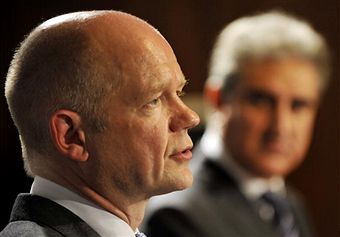Report: David Cameron will campaign against AV
ITV’s Lucy Manning reports that David Cameron will campaign against AV ahead of next year’s referendum In one respect, it’s not surprising news: this is what the Tories have always said they’d do. But given recent rumblings and speculation to the contrary, it’s still worth noting down. If the Tories don’t change their minds before 5 May 2011, the question is how loud and proud that ‘No’ campaign will be. If Cameron keeps it low-key, then it might win him some goodwill with the Lib Dems. But, equally, it could leave him stranded between a strong Yes campaign on one side, and more vocal No campaigns on the other –




















